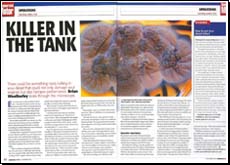Nimbus News - Spring 2013 
 Recent changes in the EU/UK supply of fuel regulations have made it more likely that we will suffer fuel contamination of our diesel fuel and fuel tanks.
Recent changes in the EU/UK supply of fuel regulations have made it more likely that we will suffer fuel contamination of our diesel fuel and fuel tanks.
In the past, our marine diesel fuel has basically been ‘central heating’ oil, which although it has good storage properties, doesn’t contain the performance enhancing additives of ‘road fuel’.
The new legislation requires the supply of low sulphur diesel fuel where it is to be used on ‘Inland Waterways’. The definition of inland waterways included estuarial waters such as the Solent. Low sulphur diesel presents no threat in itself, provided that the refineries have added a lubricity enhancer, which they will have done. The most cost effective way for fuel distributors to supply marine fuel to refuelling stations is to bring in road diesel fuel...... READ MORE





